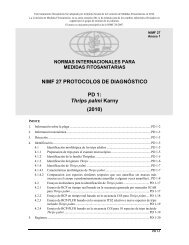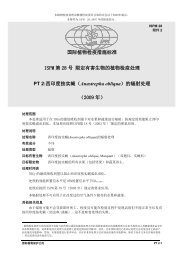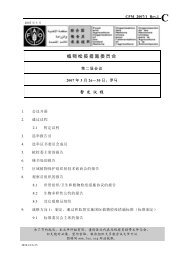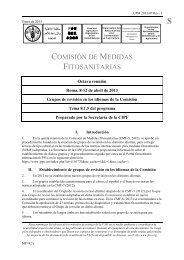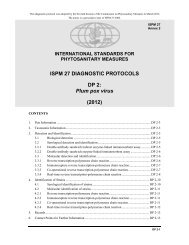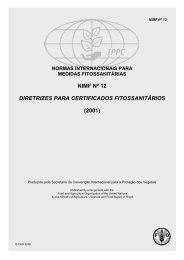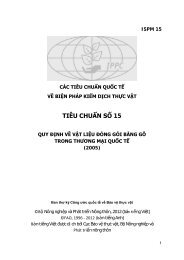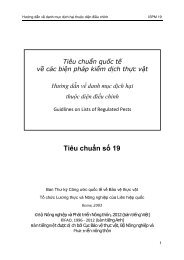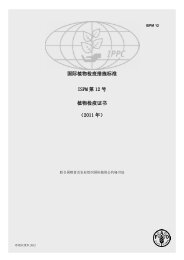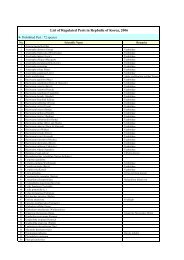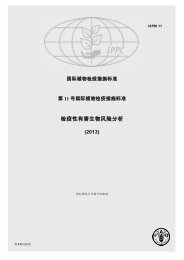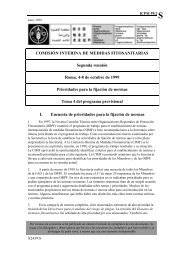Untitled
Untitled
Untitled
Create successful ePaper yourself
Turn your PDF publications into a flip-book with our unique Google optimized e-Paper software.
Cambodia reported that their National Phytosanitary Database (NPD) servers were<br />
now currently operating on Phase I, and an expansion program to upgrade the network was<br />
planned for Phase II. Funding is a problem for the expansion.<br />
There were no discussions for the other Country Reports<br />
5.5 Status of LMO<br />
The facilitator explained that LMOs were only included under the IPPC if they were<br />
classified as pests. If an LMO has a potential to become a pest, then it would be included,<br />
after an execution of a PRA.<br />
5.6 Dispute Settlement<br />
The facilitator explained that the IPPC should compliment and not have any conflict<br />
with the WTO. There exists a Susidary Body for Dispute Settlement (SBDS), and options<br />
for countries have been compiled in the Dispute Settlement Manual (to be published in the<br />
next 4 months). These options, could be considered first to solve the disputes before an<br />
issue is brought to the WTO. All discussions under this process are based on technical<br />
issues. While outcomes of IPPC decisions were not legally binding, findings of the IPPC<br />
can give a reasonable indication of the expectations of WTO decisions, which are legally<br />
binding, based on technical issues. Trading partners should first agree on the type of system<br />
they should use to settle the disputes under the IPPC. The availability of early information<br />
through the IPP should be useful to reduce disputes.<br />
5.7 Commitment from Member Countries<br />
Member countries were requested to give feedback to the Secretariat in order to<br />
improve the IPP system. Editors on return to their countries should train other editors<br />
registered in the IPP and promote the use of the IPP by senior management<br />
5.8 Information from Scientific Organizations<br />
The facilitator explained that information from Scientific Organizations, such as<br />
CABI, was not considered as official information, because they were not from a designated<br />
contact point. However, such information would be classified as scientific information,<br />
which could be applied at the user’s own risk, after sufficient verification from several<br />
sources. Care should also be taken before commitments are made based on other sources,<br />
such as Consultants’ Reports.<br />
5.9 Entry into Force of the IPPC 1997<br />
It was noted the IPPC may come into force before the end of 2005 and countries<br />
were encouraged to accept or adhere to the IPPC if they have not already done so. Failure to<br />
do so and on entry into force of the IPPC 1997 will result in non-contracting parties being<br />
excluded from most IPPC processes and the work program. This would likely reduce access<br />
to technical assistance.<br />
9




